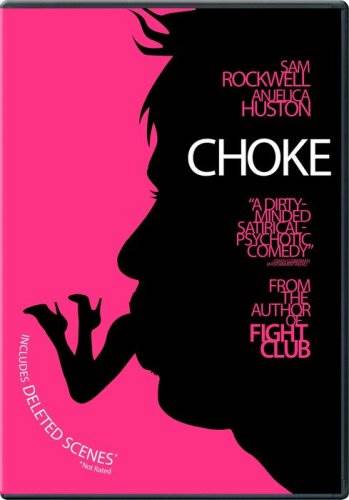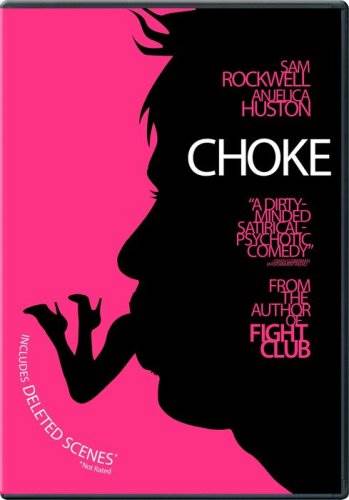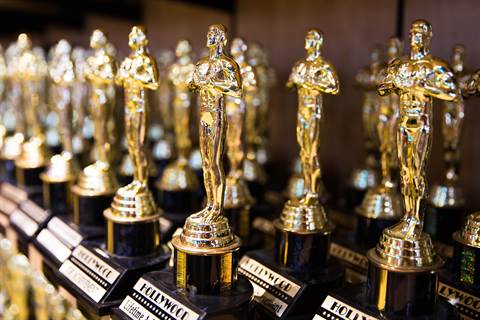
Clark Gregg, the director of Choke, recently had a chance to sit down with one of FlickDirect's staff members, Marco Chacon, and discuss the upcoming DVD release of Choke...
Marco: What do you say about the person who doesn't know Chuck Palahniuk? Why should they see Choke?
Clark: On one hand, it is the funniest sex-addicted, colonial theme-park movie out this year. On the other hand, as outrageous and funny as Choke, is that it taps into some uncomfortable subjects like sex addiction in an uncomfortable way.
Marco: You adapted Choke from the Chuck Palahniuk novel of the same name. What did you bring to the movie?
Clark: You know all I really did was take people from a story -- a world that Chuck wrote -- and placed them in the three-dimensional world of the movie. A couple of the characters like Cherry and Lord High Charlie, who I play, get to exist more fully -- to play out their stories a few beats more than in the book.
For example, Lord High Charlie (Editor's Note: The boss at the colonial theme park where the characters work) became someone who, for all his shallow behavior, was committing, vulnerable and tends to get to Victor (the main character)...albeit in a scene where Charlie discovers Victor getting/masturbated by the girl Charlie is in love with! I wanted to have him push Victor to his conclusion rather than fading out as in the book.
The aesthetic boundaries, the edginess boundaries -- it wasn't necessary to push those.
Marco: Many of the characters in Choke are extreme personalities. Was it difficult to make the characters more likable?
Clark: That was exactly the challenge of the movie, because I feel like Chuck, in the book, represented extreme people sometimes doing callous things -- like they do in real life -- but they never crossed the line to where I didn't have sympathy for them.
In the writing, casting and acting, we tried to walk that fine line. I never felt like we had to make them more sympathetic; as long as you felt you understood their motivations, you would not check out on it. I also found that some of the more extreme people like Ida, the main character's mother, hit notes of recognition for people. A lot of people have had a 'crazy mother' (laughs).
Marco: Have your parents seen Choke? Your dad is a minister, right?
Clark: Yes, he is; he is an ordained Episcopalian minister, but he teaches now. They have seen it, and they liked it. There are some Christian motifs in the story, e.g. when Victor questions whether or not Jesus was always good or whether he was kind of a dick for a while. Dad howled at that!
Marco: My mom saw it accidentally -- my wife put it on not really knowing what it was. I wasn't in the room.
Clark: ... What did she think?
Marco: Oh. She liked it and was amused. She wasn't offended. I have a question about the religious angle though. In the scene in the chapel, Sam [the main character] notes that it was Vatican II that took the angels off the ceiling. I wondered how he would have known that. I wasn't sure he would.
Clark: Very astute observation. We had to do a lot of imaginary work with that. Where does some of that Catholic stuff come from with Ida? I assume Victor had some experience with his mom's Italian Catholic upbringing -- although we never see it.
Marco: The stoning scene from the book wasn't in the movie. Did Chuck have any feelings about that? I heard he wanted that scene in.
Clark: Chuck was an amazing guardian angel; he let us do what we wanted. Fans wanted it, and I was one of them. We shot it twice, but I remain confused about why it didn't work. Our very small budget didn't make it happen. A more skilled director might have been able to make it work, or he might have done it like we did. When we looked at it, it seemed like it was from a different movie.
Marco: Speaking of fans -- what has been the fan reaction?
Clark: Overwhelmingly positive. On his website, they are huge supporters of the movie. Some people wish we would just shot page-for-page though -- you can't satisfy everyone.
Marco: Would you do another Chuck Palahniuk book?
Clark: Absolutely. I am undergoing the process of figuring out which one I can do next.
Marco: Can you talk a bit about how you translate the book to the movie? Chuck told you not to be too faithful to the book, and you have said you tried to be overly faithful but then backed off and focused on what really resonated with you.
Clark: I think that's pretty standard. The reason someone tries to turn a book into a movie is because they loved the experience of the book. They, therefore, want to hit that whole rich experience of the novel and transpose it into a screen play.
That doesn't work. The Coen brothers felt they took the book [No Country For Old Men] and turned it directly into a movie. I did a lot of reading about that stuff, and I tried to be super-faithful. In spirit, I think it is. There were so many funny and terrific things that I didn't want to cut them, but the movie, the screen play -- it couldn't hold the weight of that kind of reverence.
I worked on the script for several years on and off. At one point I asked Sam who was wearing headphones approximately 13 hours a day, "What are you listening to?" It was a Chuck Palahniuk audio book. During the filming, Sam was constantly putting lines back in the movie from the book that I'd taken out.
I love that--people coming back to their favorite stuff in the book.
Marco: You got to meet Chuck, yes? He's in the movie in a cameo.
Clark: He came and hung out with us for a week. He was really fun to have around!
Marco: Wasn't the mental facility you filmed a real abandoned, mental hospital?
Clark: It was. It was a giant facility -- 30-something buildings, built in the early 1900's. It was a functioning city for the mentally ill with a giant cooking facility and places where they made clothes and everything. We would find a room that was locked up. When we got into the room, there would be approximately 1000 un-painted clay owls for arts and crafts therapy.
There were amazing murals on the walls. Giant murals of things like beaches--to cheer you up.
Marco: Choke was made quickly, wasn't it?
Clark: Twenty-five days. It was swelteringly hot, but everyone was into it. We felt we were making an unadulterated movie; no one told us we couldn't make a movie about a potential cloned savior from the foreskin of Jesus.
Marco: Choke was your directorial debut, wasn't it? What did you learn from being on the other side of the camera?
Clark: I learned a lot about acting. As an actor, it was a gift because everyone does things differently. Being there working with 25 other supremely talented people and telling the story the way we wanted to tell it? It satisfied a long-standing hunger.



